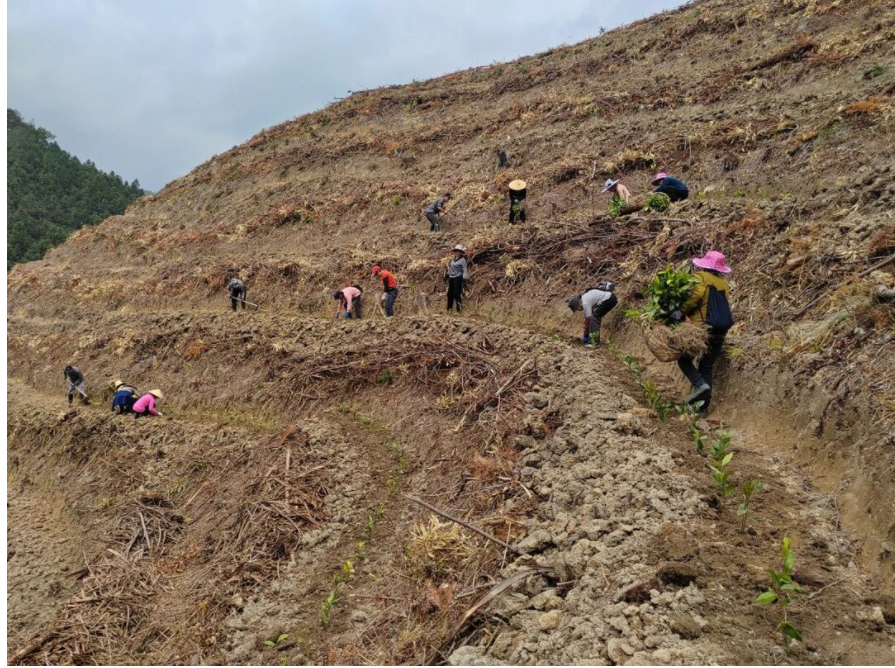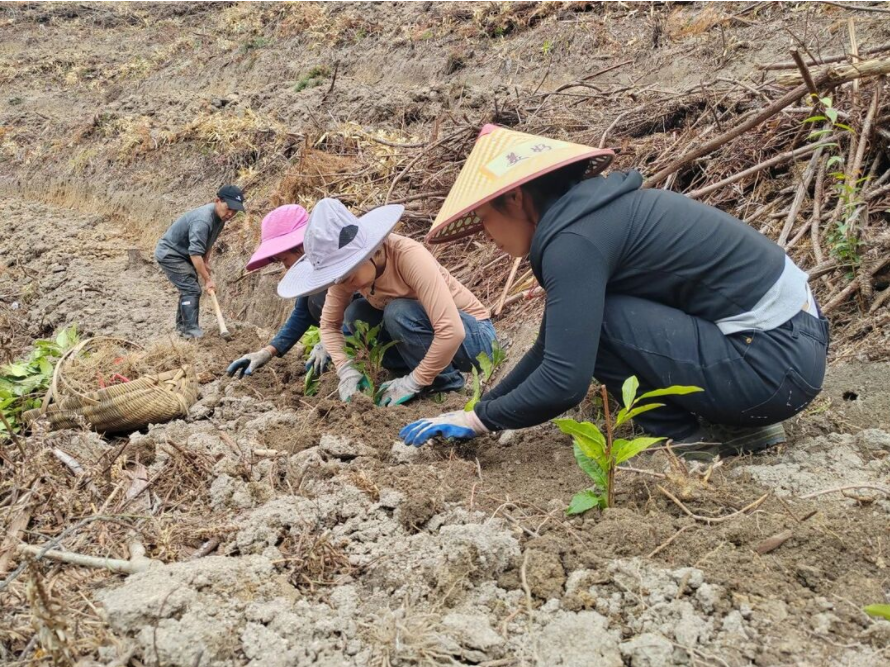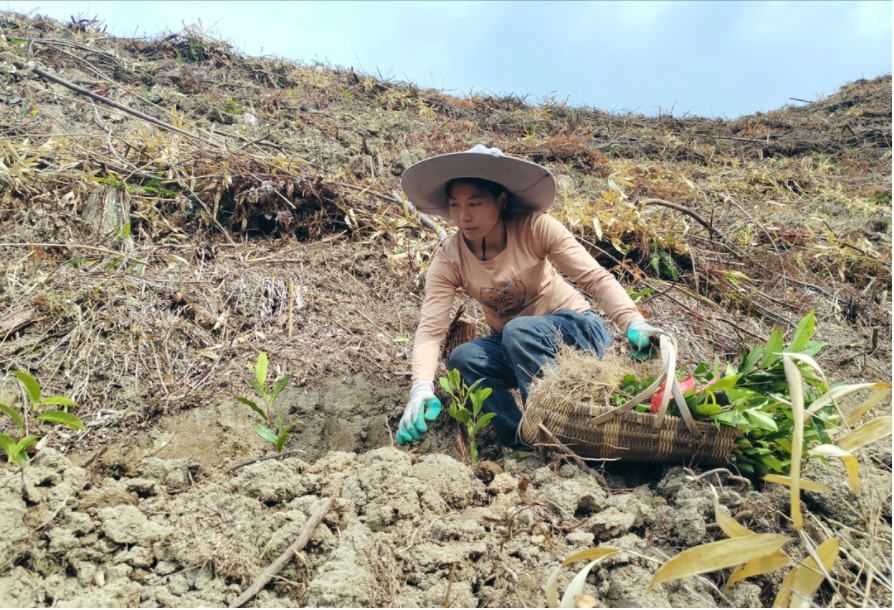Farmers busy transplanting tea trees
2025-03-03
Tea farmers were busy planting tea seedlings at Rucheng Baimao Tea Base of Jiulongjiang National Forest Park on March 1.

“Recently, due to sufficient rainfall, the soil moisture is just right. We organized more than 100 people to transplant tea trees within seven days, and the survival rate will reach over 80%,” Zhang Liangfang, head of the tea garden.
This year, the base plans to add 500 mu (about 33.33 hectares) of tea gardens, which is expected to increase farmers’ income by 12,000 yuan in the surrounding areas.

A villager said that she could earn over 20,000 yuan in the tea garden a year while taking care of her family.
Now, the base has a planting scale of over 2,000 mu (133.33 hectares) in cooperation with modern processing plants, with an expected annual output value exceeding 50 million yuan, and driving over 1,500 households to increase income by 23 million yuan.

The local government has invested 60 million yuan to create multiple areas such as wild tea core area and traditional planting area, and introduced the model that combines the cooperative with farmers and enterprises to promote the upgrading of the whole industrial chain.
Chinese source: hunantoday




